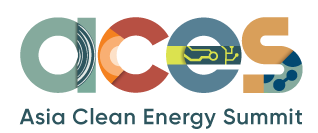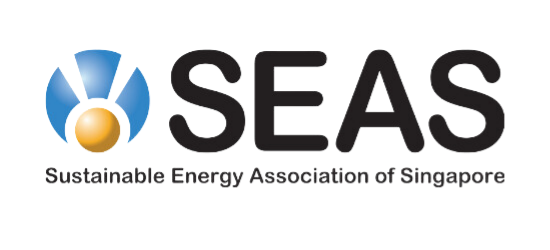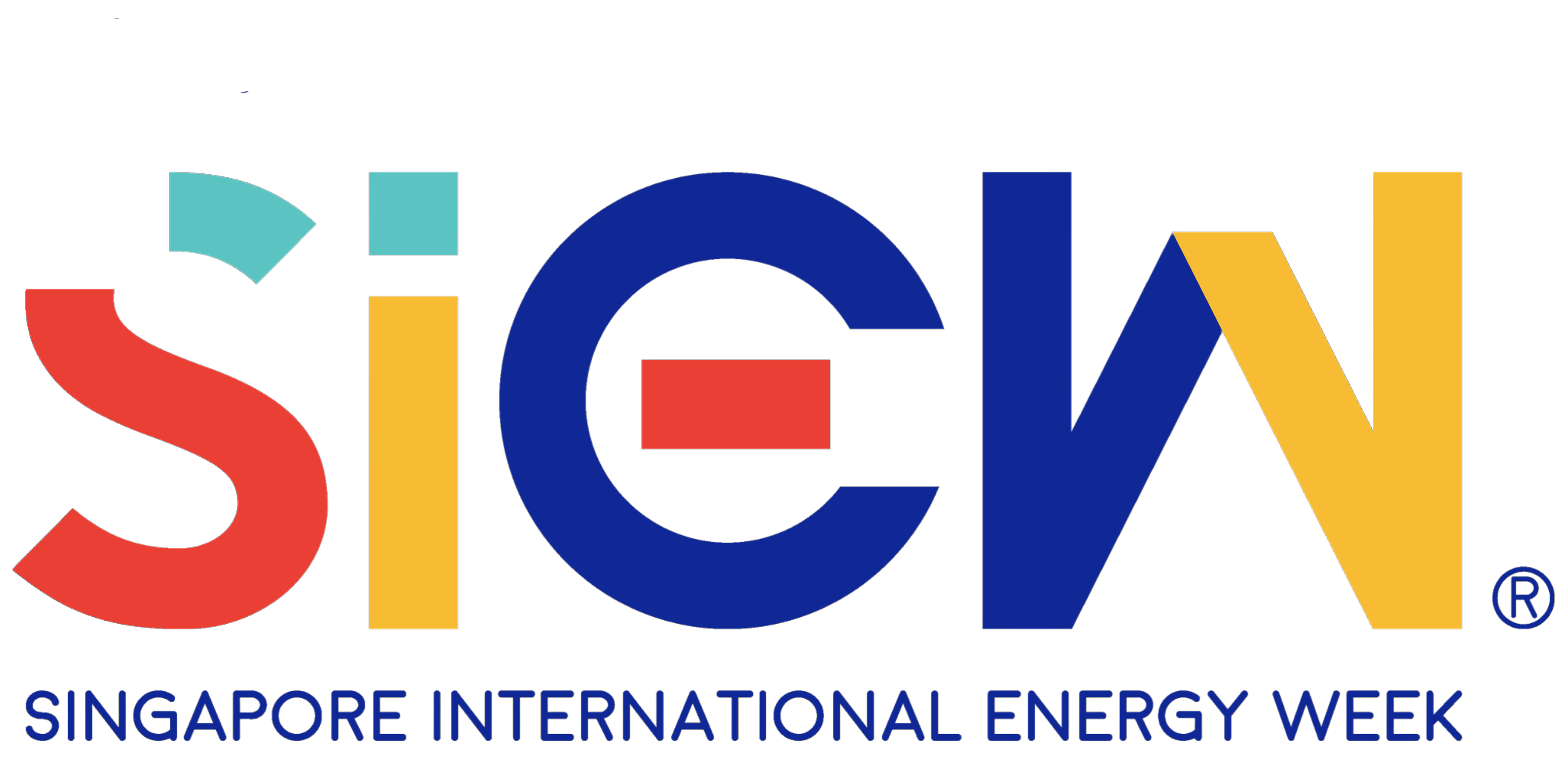Opening Ceremony & Clean Energy Leaders' Dialogue
The 2025 Clean Energy Leaders’ Dialogue (CELD), a core component of the Asia Clean Energy Summit, will center around the overarching theme of “Navigating the New Calculus of Clean Energy: Balancing Geopolitics, Innovation, and Investment in Asia." This theme reflects the dynamic landscape of clean energy, particularly in the Asia-Pacific region, where rapid growth and ambitious climate commitments intersect with evolving geopolitical realities and groundbreaking technological advancements.
Opening Ceremony & Clean Energy Leaders' Dialogue
The 2025 Clean Energy Leaders’ Dialogue (CELD), a core component of the Asia Clean Energy Summit, will center around the overarching theme of “Navigating the New Calculus of Clean Energy: Balancing Geopolitics, Innovation, and Investment in Asia." This theme reflects the dynamic landscape of clean energy, particularly in the Asia-Pacific region, where rapid growth and ambitious climate commitments intersect with evolving geopolitical realities and groundbreaking technological advancements.
Opening Ceremony & Clean Energy Leaders' Dialogue
The 2025 Clean Energy Leaders’ Dialogue (CELD), a core component of the Asia Clean Energy Summit, will center around the overarching theme of “Navigating the New Calculus of Clean Energy: Balancing Geopolitics, Innovation, and Investment in Asia." This theme reflects the dynamic landscape of clean energy, particularly in the Asia-Pacific region, where rapid growth and ambitious climate commitments intersect with evolving geopolitical realities and groundbreaking technological advancements.
Singapore-IRENA High-Level Forum
Global investments in renewable energy capacity and energy efficiency falls short of the USD 31.5 trillion needed annually till 2030. In Southeast Asia, estimates indicate that USD 200 billion per annum in investments for renewable energy and energy efficient measures are needed by 2030. Without urgent policy intervention to drive significant investments, the region is at risk of missing its energy transition goals.
Against this backdrop, global leaders will gather at the 5th Singapore-IRENA High-Level Forum to discuss the theme of “Partnerships for an Interconnected and Renewable Tomorrow”. Listen to their perspectives on financing the energy transition and the key ingredients needed to mobilise both public and private financing as we advance towards tomorrow’s energy landscape. Join them as they engage in discussions on unlocking investment potential, enabling cross border energy trading, and building future-ready energy systems.
Singapore-IRENA High-Level Forum
Global investments in renewable energy capacity and energy efficiency falls short of the USD 31.5 trillion needed annually till 2030. In Southeast Asia, estimates indicate that USD 200 billion per annum in investments for renewable energy and energy efficient measures are needed by 2030. Without urgent policy intervention to drive significant investments, the region is at risk of missing its energy transition goals.
Against this backdrop, global leaders will gather at the 5th Singapore-IRENA High-Level Forum to discuss the theme of “Partnerships for an Interconnected and Renewable Tomorrow”. Listen to their perspectives on financing the energy transition and the key ingredients needed to mobilise both public and private financing as we advance towards tomorrow’s energy landscape. Join them as they engage in discussions on unlocking investment potential, enabling cross border energy trading, and building future-ready energy systems.
Singapore-IRENA High-Level Forum
Global investments in renewable energy capacity and energy efficiency falls short of the USD 31.5 trillion needed annually till 2030. In Southeast Asia, estimates indicate that USD 200 billion per annum in investments for renewable energy and energy efficient measures are needed by 2030. Without urgent policy intervention to drive significant investments, the region is at risk of missing its energy transition goals.
Against this backdrop, global leaders will gather at the 5th Singapore-IRENA High-Level Forum to discuss the theme of “Partnerships for an Interconnected and Renewable Tomorrow”. Listen to their perspectives on financing the energy transition and the key ingredients needed to mobilise both public and private financing as we advance towards tomorrow’s energy landscape. Join them as they engage in discussions on unlocking investment potential, enabling cross border energy trading, and building future-ready energy systems.
Solar and Storage
As the region drives ambitious net-zero goals, solar and energy storage have continuously taken centre stage in accelerating the clean energy transition. This conference will spotlight the transformative potential of these cutting-edge solutions in addressing energy demand, grid reliability, and investment challenges while unlocking massive opportunities for growth.
Facilitator: Dr Thomas Reindl, Deputy CEO, Solar Energy Research Institute of Singapore (SERIS), National University of Singapore (NUS)
Solar and Storage
As the region drives ambitious net-zero goals, solar and energy storage have continuously taken centre stage in accelerating the clean energy transition. This conference will spotlight the transformative potential of these cutting-edge solutions in addressing energy demand, grid reliability, and investment challenges while unlocking massive opportunities for growth.
Facilitator: Dr Thomas Reindl, Deputy CEO, Solar Energy Research Institute of Singapore (SERIS), National University of Singapore (NUS)
Solar and Storage
As the region drives ambitious net-zero goals, solar and energy storage have continuously taken centre stage in accelerating the clean energy transition. This conference will spotlight the transformative potential of these cutting-edge solutions in addressing energy demand, grid reliability, and investment challenges while unlocking massive opportunities for growth.
Facilitator: Dr Thomas Reindl, Deputy CEO, Solar Energy Research Institute of Singapore (SERIS), National University of Singapore (NUS)
Energy Efficiency
ASEAN is set to become the fourth-largest economy globally by 2030. Driven by rapid urbanisation, economic development, and population growth, ASEAN’s energy demand is projected to increase by 2.6 times the 2022 level by 2050. A transition to a more energy-efficient future is essential to address the region’s energy trilemma of security, equity and sustainability.
To moderate energy demand growth and improve energy cost efficiencies, an accelerated shift to renewables must go hand-in-hand with demand-side management and Energy Efficiency measures. At COP29, global leaders highlighted that the world was falling behind on the COP28 goal to double Energy Efficiency by 2030. “Accelerating Decarbonisation of Asia’s Built Environment” convenes policymakers and the private sector to address challenges, uncover opportunities and chart a collective path forward.
Consisting of two inter-related sessions, the first session “Greening ASEAN: Decarbonising Industrial Parks for Sustainable Economic Growth” will be centred on tools and mechanisms for policymakers to enable decarbonisation of industries in ASEAN. The second session “Scaling Decarbonisation of Asia’s Built Environment: Unlocking Opportunities and Financing Instruments for Energy Efficiency” will then focus on addressing market gaps through demand aggregation and innovative financing to turn Energy Efficiency measures into the first source of fuel.
Energy Efficiency
ASEAN is set to become the fourth-largest economy globally by 2030. Driven by rapid urbanisation, economic development, and population growth, ASEAN’s energy demand is projected to increase by 2.6 times the 2022 level by 2050. A transition to a more energy-efficient future is essential to address the region’s energy trilemma of security, equity and sustainability.
To moderate energy demand growth and improve energy cost efficiencies, an accelerated shift to renewables must go hand-in-hand with demand-side management and Energy Efficiency measures. At COP29, global leaders highlighted that the world was falling behind on the COP28 goal to double Energy Efficiency by 2030. “Accelerating Decarbonisation of Asia’s Built Environment” convenes policymakers and the private sector to address challenges, uncover opportunities and chart a collective path forward.
Consisting of two inter-related sessions, the first session “Greening ASEAN: Decarbonising Industrial Parks for Sustainable Economic Growth” will be centred on tools and mechanisms for policymakers to enable decarbonisation of industries in ASEAN. The second session “Scaling Decarbonisation of Asia’s Built Environment: Unlocking Opportunities and Financing Instruments for Energy Efficiency” will then focus on addressing market gaps through demand aggregation and innovative financing to turn Energy Efficiency measures into the first source of fuel.
Energy Efficiency
ASEAN is set to become the fourth-largest economy globally by 2030. Driven by rapid urbanisation, economic development, and population growth, ASEAN’s energy demand is projected to increase by 2.6 times the 2022 level by 2050. A transition to a more energy-efficient future is essential to address the region’s energy trilemma of security, equity and sustainability.
To moderate energy demand growth and improve energy cost efficiencies, an accelerated shift to renewables must go hand-in-hand with demand-side management and Energy Efficiency measures. At COP29, global leaders highlighted that the world was falling behind on the COP28 goal to double Energy Efficiency by 2030. “Accelerating Decarbonisation of Asia’s Built Environment” convenes policymakers and the private sector to address challenges, uncover opportunities and chart a collective path forward.
Consisting of two inter-related sessions, the first session “Greening ASEAN: Decarbonising Industrial Parks for Sustainable Economic Growth” will be centred on tools and mechanisms for policymakers to enable decarbonisation of industries in ASEAN. The second session “Scaling Decarbonisation of Asia’s Built Environment: Unlocking Opportunities and Financing Instruments for Energy Efficiency” will then focus on addressing market gaps through demand aggregation and innovative financing to turn Energy Efficiency measures into the first source of fuel.
BioEnergy
The BioEnergy session presents a comprehensive exploration of bioenergy's transformative role in Southeast Asia's sustainable future, structured around four key themes:
1. Regional Market Leadership & Supply Chain Development
2. Investment & Project Bankability
3. Technical Innovation & Certification
4. Strategic Energy Transition Integration
The BioEnergy session emphasizes practical, actionable strategies for transforming Southeast Asia's abundant biomass resources into commercially viable bioenergy projects while supporting regional decarbonization goals and economic development.
Facilitator: Steve Peters, Planetary.Blue
BioEnergy
The BioEnergy session presents a comprehensive exploration of bioenergy's transformative role in Southeast Asia's sustainable future, structured around four key themes:
1. Regional Market Leadership & Supply Chain Development
2. Investment & Project Bankability
3. Technical Innovation & Certification
4. Strategic Energy Transition Integration
The BioEnergy session emphasizes practical, actionable strategies for transforming Southeast Asia's abundant biomass resources into commercially viable bioenergy projects while supporting regional decarbonization goals and economic development.
Facilitator: Steve Peters, Planetary.Blue
BioEnergy
The BioEnergy session presents a comprehensive exploration of bioenergy's transformative role in Southeast Asia's sustainable future, structured around four key themes:
1. Regional Market Leadership & Supply Chain Development
2. Investment & Project Bankability
3. Technical Innovation & Certification
4. Strategic Energy Transition Integration
The BioEnergy session emphasizes practical, actionable strategies for transforming Southeast Asia's abundant biomass resources into commercially viable bioenergy projects while supporting regional decarbonization goals and economic development.
Facilitator: Steve Peters, Planetary.Blue
Green Hydrogen
The Green Hydrogen session represents the forefront of innovation meets the urgency of global energy transition. As the energy landscape evolves, green hydrogen and ammonia are stepping into the spotlight as transformative solutions for decarbonizing industries, energy storage, and transportation. From advancing technologies and retrofitting infrastructure to aligning regulatory frameworks and fostering cross-border collaboration, the sessions will delve into the latest insights driving the hydrogen and ammonia revolution. Asia Pacific is nearing to be a global powerhouse in green hydrogen and ammonia; charting a path toward a more sustainable and resilient energy future.
Facilitator: Dr Thomas Koller, Hydrogen and CCUS Regional Lead, APAC, DNV
Green Hydrogen
The Green Hydrogen session represents the forefront of innovation meets the urgency of global energy transition. As the energy landscape evolves, green hydrogen and ammonia are stepping into the spotlight as transformative solutions for decarbonizing industries, energy storage, and transportation. From advancing technologies and retrofitting infrastructure to aligning regulatory frameworks and fostering cross-border collaboration, the sessions will delve into the latest insights driving the hydrogen and ammonia revolution. Asia Pacific is nearing to be a global powerhouse in green hydrogen and ammonia; charting a path toward a more sustainable and resilient energy future.
Facilitator: Dr Thomas Koller, Hydrogen and CCUS Regional Lead, APAC, DNV
Green Hydrogen
The Green Hydrogen session represents the forefront of innovation meets the urgency of global energy transition. As the energy landscape evolves, green hydrogen and ammonia are stepping into the spotlight as transformative solutions for decarbonizing industries, energy storage, and transportation. From advancing technologies and retrofitting infrastructure to aligning regulatory frameworks and fostering cross-border collaboration, the sessions will delve into the latest insights driving the hydrogen and ammonia revolution. Asia Pacific is nearing to be a global powerhouse in green hydrogen and ammonia; charting a path toward a more sustainable and resilient energy future.
Facilitator: Dr Thomas Koller, Hydrogen and CCUS Regional Lead, APAC, DNV
Innovative DRE System Solutions for Asia and the Pacific
Access to clean, reliable, and affordable electricity remains a persistent challenge across Asia and the Pacific. Despite significant progress in power supply and grid extension, around 50 million people still lack access to electricity.
Meanwhile, approximately 350 million people who are connected to the grid continue to experience load shedding, poor service quality, or insufficient supply.
Decentralised renewable energy (DRE) technologies—such as mini-grids, solar home systems, productive use of renewable energy applications, and hybrid solutions—have emerged as cost-effective, scalable, and climate-resilient pathways to achieving SDG7 (universal energy access) and accelerating the clean energy transition. These systems also offer commercial and industrial enterprises, as well as social institutions such as healthcare facilities, alternative energy solutions that are not only more affordable and sustainable, but also potentially more reliable, while enabling improvements in energy efficiency.
Recognising this potential, the Asian Development Bank (ADB), together with the Sustainable Energy Association of Singapore (SEAS), Alliance for Rural Electrification (ARE) and the Korea Energy Agency (KEA), is convening a joint plenary session at ACES 2025 to foster dialogue, share best practices, and explore innovative approaches to deploying DRE solutions for last-mile communities. The session will bring together policymakers, financiers, technology providers, and practitioners to address barriers, highlight scalable business models, and catalyse partnerships for impact.
Innovative DRE System Solutions for Asia and the Pacific
Access to clean, reliable, and affordable electricity remains a persistent challenge across Asia and the Pacific. Despite significant progress in power supply and grid extension, around 50 million people still lack access to electricity.
Meanwhile, approximately 350 million people who are connected to the grid continue to experience load shedding, poor service quality, or insufficient supply.
Decentralised renewable energy (DRE) technologies—such as mini-grids, solar home systems, productive use of renewable energy applications, and hybrid solutions—have emerged as cost-effective, scalable, and climate-resilient pathways to achieving SDG7 (universal energy access) and accelerating the clean energy transition. These systems also offer commercial and industrial enterprises, as well as social institutions such as healthcare facilities, alternative energy solutions that are not only more affordable and sustainable, but also potentially more reliable, while enabling improvements in energy efficiency.
Recognising this potential, the Asian Development Bank (ADB), together with the Sustainable Energy Association of Singapore (SEAS), Alliance for Rural Electrification (ARE) and the Korea Energy Agency (KEA), is convening a joint plenary session at ACES 2025 to foster dialogue, share best practices, and explore innovative approaches to deploying DRE solutions for last-mile communities. The session will bring together policymakers, financiers, technology providers, and practitioners to address barriers, highlight scalable business models, and catalyse partnerships for impact.
Innovative DRE System Solutions for Asia and the Pacific
Access to clean, reliable, and affordable electricity remains a persistent challenge across Asia and the Pacific. Despite significant progress in power supply and grid extension, around 50 million people still lack access to electricity.
Meanwhile, approximately 350 million people who are connected to the grid continue to experience load shedding, poor service quality, or insufficient supply.
Decentralised renewable energy (DRE) technologies—such as mini-grids, solar home systems, productive use of renewable energy applications, and hybrid solutions—have emerged as cost-effective, scalable, and climate-resilient pathways to achieving SDG7 (universal energy access) and accelerating the clean energy transition. These systems also offer commercial and industrial enterprises, as well as social institutions such as healthcare facilities, alternative energy solutions that are not only more affordable and sustainable, but also potentially more reliable, while enabling improvements in energy efficiency.
Recognising this potential, the Asian Development Bank (ADB), together with the Sustainable Energy Association of Singapore (SEAS), Alliance for Rural Electrification (ARE) and the Korea Energy Agency (KEA), is convening a joint plenary session at ACES 2025 to foster dialogue, share best practices, and explore innovative approaches to deploying DRE solutions for last-mile communities. The session will bring together policymakers, financiers, technology providers, and practitioners to address barriers, highlight scalable business models, and catalyse partnerships for impact.
TechTalks @ ACES
TechTalks @ ACES
TechTalks @ ACES







